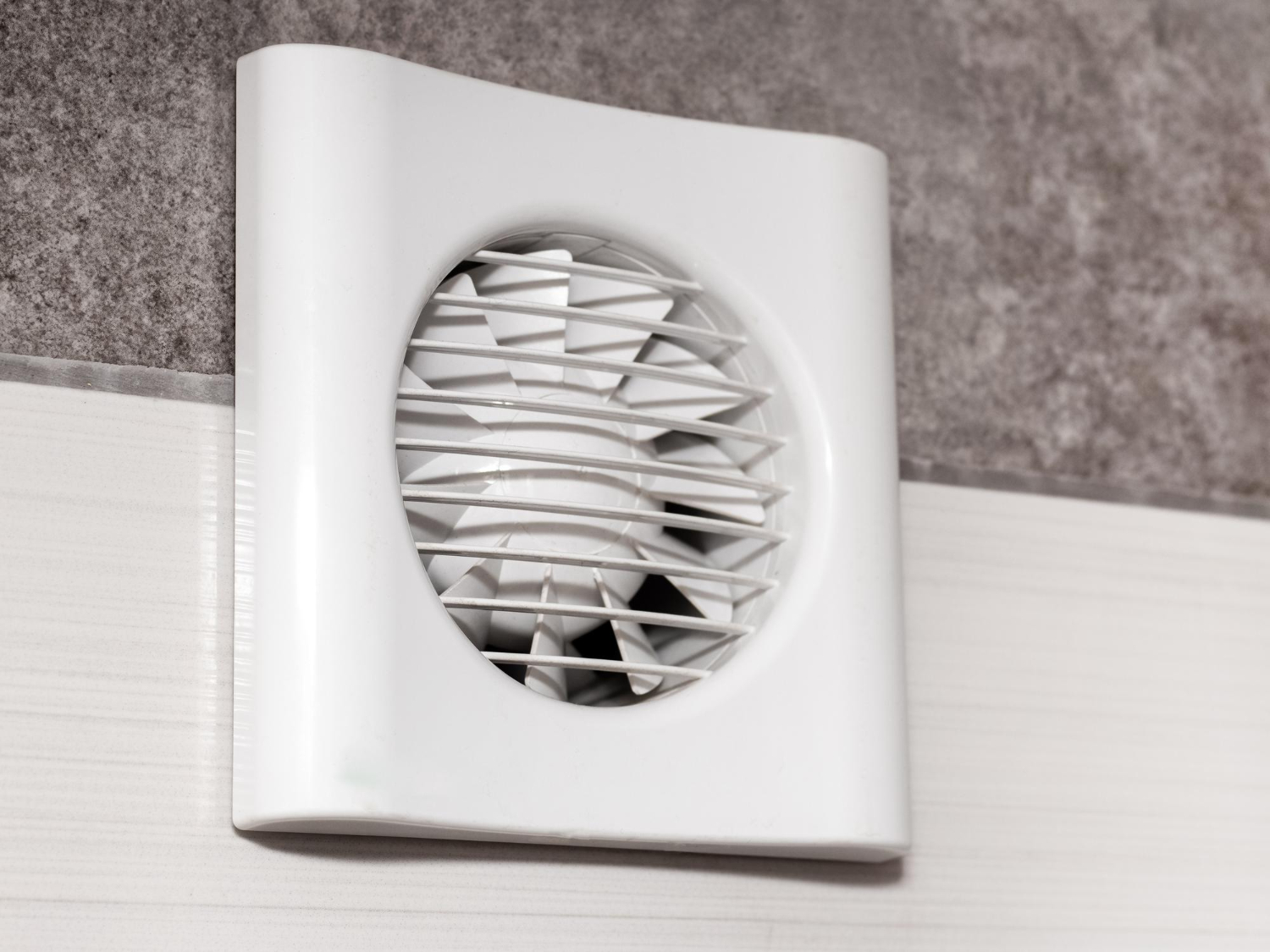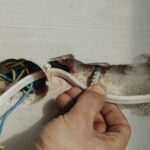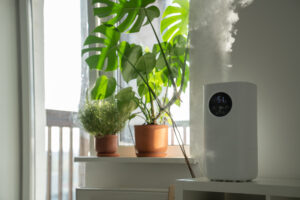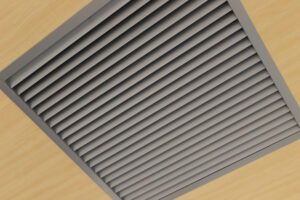
Breathing clean air in your home is essential for good health. Poor indoor air quality can cause allergies, asthma, and other respiratory issues. Luckily, there are simple steps you can take to improve the air you breathe every day. These tricks can help you create a healthier living environment without much hassle.
One of the easiest ways to enhance indoor air quality is by regularly maintaining your HVAC system. Changing your air filters can make a significant difference. Dirty filters can circulate dust and pollutants through your home, while clean filters trap these particles, keeping your air fresher. Routine maintenance ensures that your HVAC system operates efficiently and effectively in providing clean air.
Adding houseplants to your indoor spaces is another effective way to purify the air naturally. Plants like spider plants, peace lilies, and snake plants can filter out harmful toxins and improve oxygen levels. Besides their air-cleaning properties, houseplants also add a touch of greenery and beauty to your home, making it a more pleasant place to live.
By understanding and implementing these simple tricks, you can significantly improve the quality of the air in your home. Cleaner air means a healthier environment for you and your loved ones, which can lead to better overall well-being.
Regularly Change HVAC Filters
One of the most straightforward ways to improve your indoor air quality is by regularly changing your HVAC filters. These filters are designed to trap dust, pollen, pet dander, and other particles, preventing them from circulating throughout your home. When filters become clogged and dirty, they can’t effectively capture these contaminants, which can negatively impact the air you breathe.
Changing your HVAC filters is easy. Most experts recommend replacing your filters every 1-3 months, depending on usage and the type of filter you use. If you have pets, live in a dusty area, or run your HVAC system frequently, you might need to change the filters more often. High-efficiency particulate air (HEPA) filters are an excellent choice for those looking to remove the most particles from their air.
Regular filter changes also help your HVAC system run more efficiently. When filters are clogged, your system has to work harder to push air through, which can lead to higher energy bills and wear and tear on the system. By keeping your filters clean, you ensure your air conditioner and heater operate smoothly and efficiently, prolonging their lifespan and maintaining better indoor air quality.
Use Houseplants for Natural Air Purification
Adding houseplants to your home is an effective and natural way to improve air quality. Many plants can absorb harmful toxins and release clean oxygen, making the air healthier for you to breathe. Some plants are especially good at filtering out common indoor pollutants like formaldehyde, benzene, and trichloroethylene.
Here are some top houseplants for air purification:
– Spider Plant: This plant is great for beginners because it’s easy to care for and effective at removing formaldehyde and xylene.
– Peace Lily: Known for its ability to filter out ammonia, benzene, and formaldehyde, the peace lily also blooms beautiful white flowers.
– Snake Plant: Also called “mother-in-law’s tongue,” this plant is excellent at removing toxins and can survive in low light, making it perfect for any room.
– Aloe Vera: Besides its air-purifying qualities, aloe vera is handy to have around for its soothing gel, which is great for burns and cuts.
Houseplants not only clean the air but also add a touch of nature and beauty to your home. They can improve your mood and create a more inviting living space. Just make sure to research the needs of each plant and place them in the appropriate spots for light and watering schedules. By integrating these natural air purifiers into your home, you can enjoy cleaner, fresher air with the added benefit of a bit of greenery.
Control Humidity Levels
Managing the humidity levels in your home is vital for maintaining good indoor air quality. Too much moisture can create an environment where mold, dust mites, and other allergens thrive. On the other hand, air that is too dry can cause respiratory issues and discomfort. Finding the right balance is key.
Using a dehumidifier is a practical solution if your home tends to be too humid, especially in areas like basements and bathrooms. Dehumidifiers pull excess moisture from the air, reducing humidity levels and making your home less hospitable to mold and mildew. Aim for a humidity level between 30-50% for the best air quality.
On the flip side, if the air in your home is too dry, particularly in the winter months, a humidifier can add necessary moisture back into the air. This helps in preventing dry throats, skin irritation, and static electricity. Some HVAC systems come with built-in humidifiers, but portable units are also effective for targeting specific areas.
Regularly check and clean your dehumidifiers and humidifiers to ensure they function properly. Dirty units can become breeding grounds for bacteria, which defeats their purpose. By controlling humidity levels, you create a more comfortable and healthier living environment.
Ensure Proper Ventilation and Airflow
Good ventilation and airflow are crucial for maintaining high indoor air quality. Proper ventilation removes stale air and pollutants from your home and brings in fresh air from outside. Here are some simple ways to improve ventilation:
– Use Exhaust Fans: Install exhaust fans in bathrooms and kitchens to remove moisture and odors. These fans help prevent mold growth and improve air quality.
– Open Windows: Whenever weather permits, open your windows to allow fresh air to circulate. Even a few minutes of fresh air can make a big difference.
– Ceiling Fans: Use ceiling fans to circulate air within your home. This keeps the air moving and prevents it from becoming stagnant.
– Air Purifiers: Use air purifiers with HEPA filters to remove airborne particles and pollutants. These devices are especially useful for people with allergies or asthma.
Maintaining your HVAC system is essential for good airflow. Ensure your ductwork is clean and free of obstructions. Vents and registers should be open and unobstructed by furniture or other items. Regular professional maintenance checks can help identify any issues with airflow and ensure that your system is working efficiently.
Final Thoughts
Improving indoor air quality doesn’t have to be complicated. By regularly changing your HVAC filters, incorporating houseplants, controlling humidity levels, and ensuring proper ventilation, you can breathe cleaner air. Clean air contributes to better health and a more comfortable living environment for you and your family.
Each of these steps offers unique benefits and collectively contributes to a significant improvement in the air you breathe at home. Taking small actions now can lead to long-term health benefits and enhance your overall quality of life.
If you’re ready to take the next step in improving your home’s air quality, Turner On Services is here to help. Our team of experts can provide professional advice and services tailored to your needs. Call Turner On Services today to ensure your indoor air quality is the best it can be!






